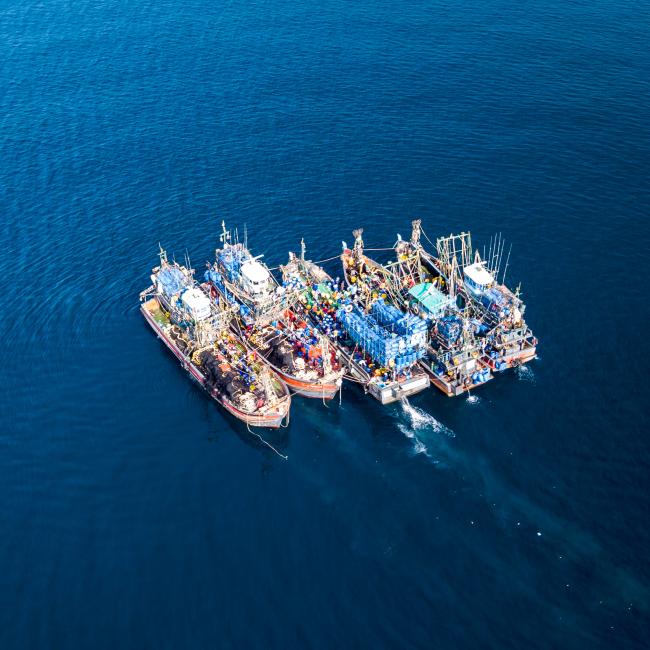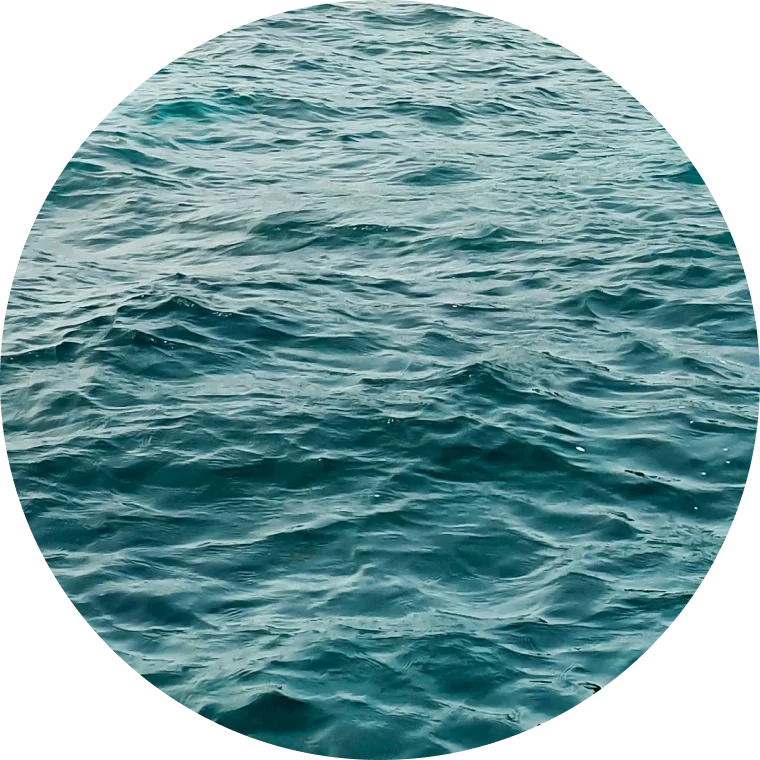It didn’t make headlines. No declarations were signed. But people talked. Openly. Honestly. And that’s how change usually operates.
Through two informal regional networks — the Tuna Compliance Network (TCN) and the Pan-Pacific Fisheries Compliance Network (PPFCN) — fisheries compliance professionals came together, once again, to share, align, and build.
For the IMCS Network, it is an opportunity to reflect on what happens when effective communication and collaboration becomes habit — and habits become systems.
“The TCN network was established with the goal of ensuring that RFMO compliance managers were not isolated and could carry out their duties while being aware of the difficulties and experiences in other organisations” stated Ricardo Belmontes, the current TCN Chair and the IATTC Policy and Compliance Officer.
It started with conversations. Now, it's delivering joint work.
The TCN began as a simple space for dialogue between those responsible for compliance in the tuna Regional Fisheries Management Organisations (RFMOs). The PPFCN followed, connecting a wider group of secretariats working across the Pacific.
“The participation this week of the PPCN, together with TCN members and IT/data managers, has allowed us to strengthen cooperation, expand opportunities for exchanging experiences, and to coordinate efforts to better support our respective members” noted Lara Manarangi-Trott, WCPFC Compliance Manager and current PPFCN Chair.
These networks weren’t designed to be policymaking bodies. They were meant to be practical. Realistic. Built on the understanding that most of the hard work in fisheries compliance happens behind the scenes.
The IMCS Network supports both networks by facilitating discussions, bringing practical solutions to the table and developing tools that RFMO secretariats have specifically requested.
In close consultation with the TCN, the PPFCN and several other RFMOs, the IMCS Network is working on three major efforts to strengthen compliance cooperation and support across the region:
-
Improving capacity support
-
We’re working with the RFMO secretariats and looking closely at how they provide technical assistance and capacity development to their members — sharing what’s working, where the gaps are, and how to strengthen that support for the benefit of all Members.
-
-
Building CRAVT — a smarter way to identify vessels
-
The fisheries MCS and compliance community often need to check whether a vessel is authorised to fish in multiple RFMO areas. That sounds simple — but it isn’t. The CRAVT, the Combined Regional Authorised Vessels Tool, pulls together vessel and vessel authorisation data from across regions. It allows users to search vessels by flag, type, owner, or RFMO, and quickly spot if a vessel appears on multiple lists — or if something doesn’t line up.
-
-
Developing the IUU Vessel List Hub
-
Today, each RFMO keeps its own IUU vessel list, but there’s no easy way to share this data and information. That’s changing. The IUU Vessel List Hub will act as a shared, up-to-date repository where secretariats can securely manage their IUU vessel data and information and streamline the sharing of final IUU list across different RFMOs. If a secretariat already has a structured database, it’ll plug in automatically. If not, we’ll help provide one. The result? A clearer picture of IUU activity, better coordination, and fewer loopholes for IUU operators.
-
Why It matters?
Illegal fishing doesn’t respect boundaries. But compliance cooperation can.
The better we align our tools, share our data, and support one another across regions, the harder it becomes to exploit the gaps.
What’s happening through the TCN and PPFCN may look technical — but it’s also deeply human. It’s the slow, deliberate work of aligning people and processes in service of a shared ocean.
“I believe that objective has been achieved, and that our meetings have forged this bond of cooperation. For me personally, this work has given me the opportunity to learn a lot and apply many of the experiences gathered here to the work carried out at IATTC”, added Ricardo.
“We are very grateful for the continued support of the IMCS Network, and I hope we can continue fostering collaboration between the two networks in the future to deepen our ties. This will ultimately help our commissions achieve the objectives of our conventions and contribute to more sustainable fisheries and healthier oceans.” concluded Lara.
The meeting has been hosted by the Secretariat of the North Pacific Fisheries Commission (NPFC).
”There is considerable value in these networks and the engagement that these meetings foster. As one of the newer RFMOs, the collaboration with colleagues in other RFMOs remains a key part of NPFCs continued development. The chance to discuss these important issues in person, to share ideas, look for synergies and common solutions is invaluable for RFMO secretariat staff and we have been happy to host the TCN and PPFCN this week” highlighted Robert Day, Executive Secretary at NPFC.
The role of the IMCS Network – Behind, beside, and between
The IMCS Network supports both networks by facilitating conversations, linking ideas and helping good things take shape.
We listen. We connect. We build infrastructure where it's needed — digital, relational, procedural.
This week in Tokyo reminded us that when people have the space to share honestly — without formality or politics — real progress follows.
This week, the IMCS Network worked. And that’s worth sharing.
More information:
Sarah Lenel | Executive Director | slenel@imcsnet.org | IMCS Network
ABOUT THE NETWORK MEMBERS:
The Tuna Compliance Network (TCN)
The TCN brings together those responsible for compliance in the secretariats of the five tuna RFMOs. It includes:
-
CCSBT – Commission for the Conservation of Southern Bluefin Tuna
-
IATTC – Inter-American Tropical Tuna Commission
-
ICCAT – International Commission for the Conservation of Atlantic Tunas
-
IOTC – Indian Ocean Tuna Commission
-
WCPFC – Western and Central Pacific Fisheries Commission
The Pan-Pacific Fisheries Compliance Network (PPFCN)
The PPFCN focuses on Pacific regional cooperation and brings together those responsible for compliance in the secretariats of the RFMOs with overlapping or adjacent mandates in the Pacific Ocean. It includes:
-
CCAMLR - Commission for the Conservation of Antarctic Marine Living Resources
-
CCSBT – Commission for the Conservation of Southern Bluefin Tuna
-
IATTC – Inter-American Tropical Tuna Commission
-
NPAFC – North Pacific Anadromous Fish Commission
-
NPFC – North Pacific Fisheries Commission
-
SPRFMO – South Pacific Regional Fisheries Management Organisation
-
WCPFC – Western and Central Pacific Fisheries Commission
These informal networks, supported by the IMCS Network, allow technical experts from across the globe to align efforts, share data, and build trust — which in turn benefits compliance work across the IMCS Network’s 81 members.

